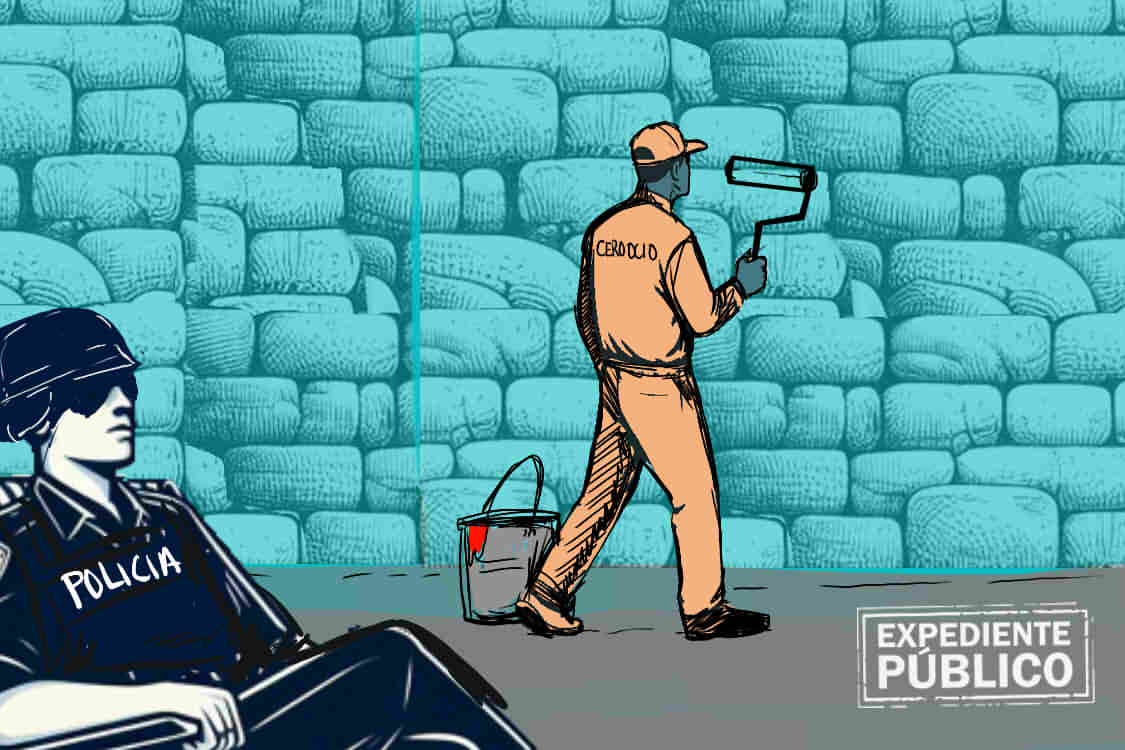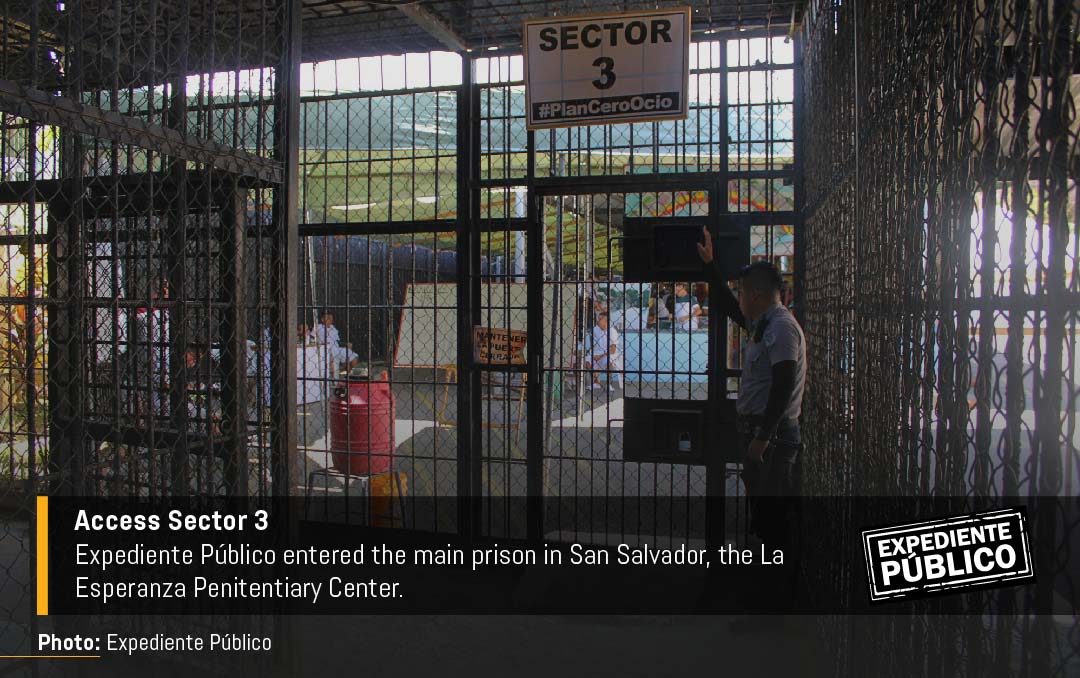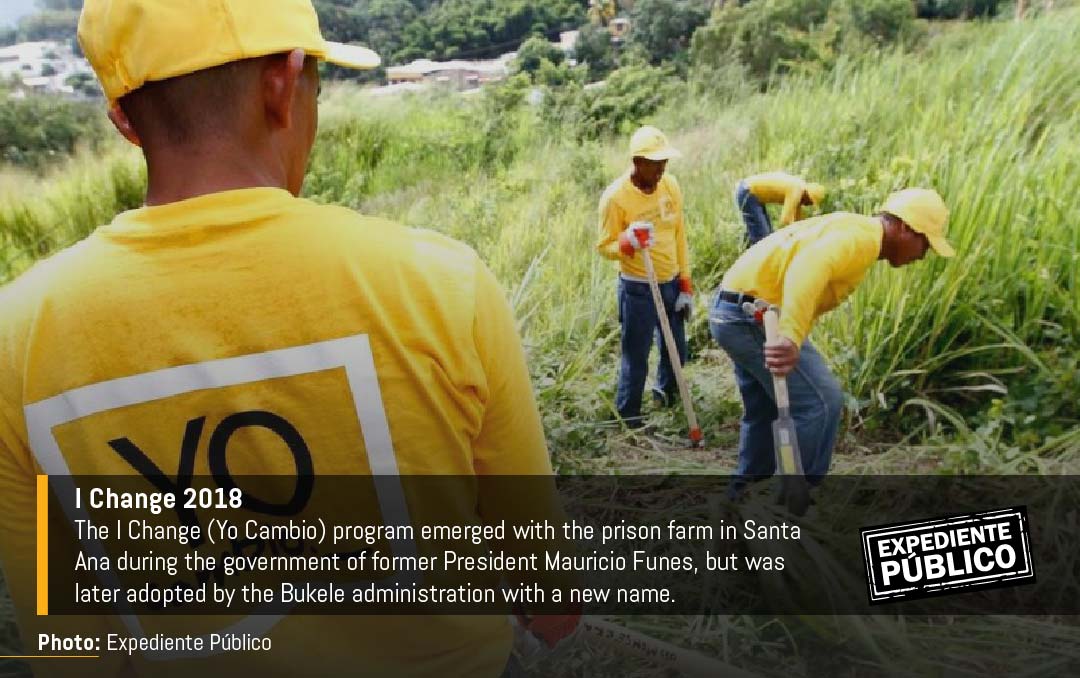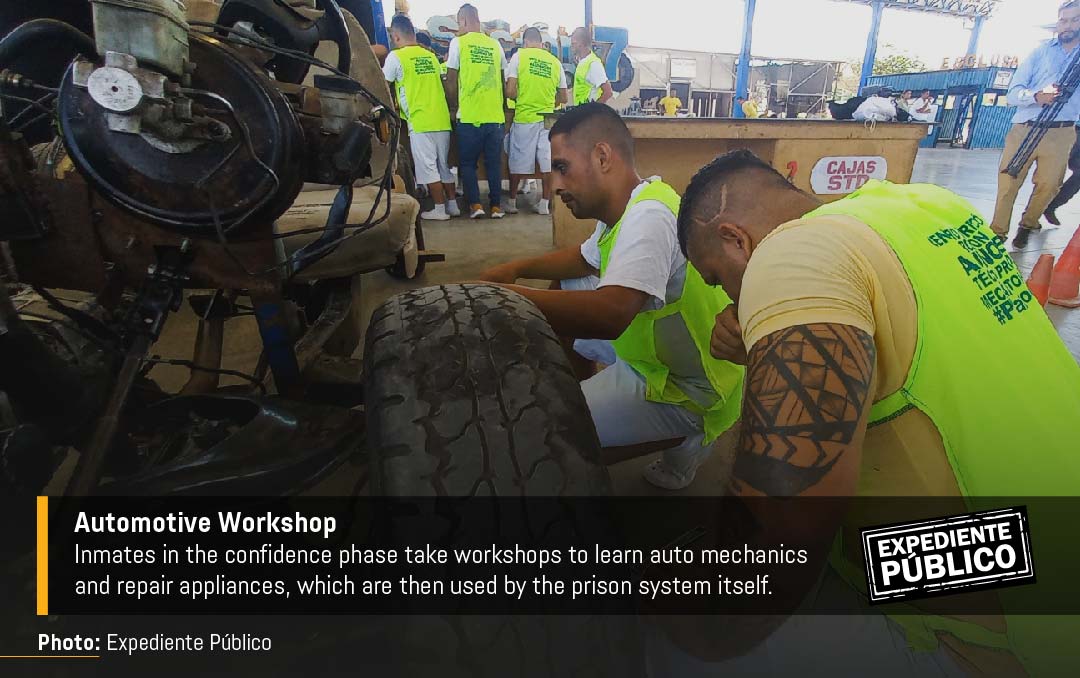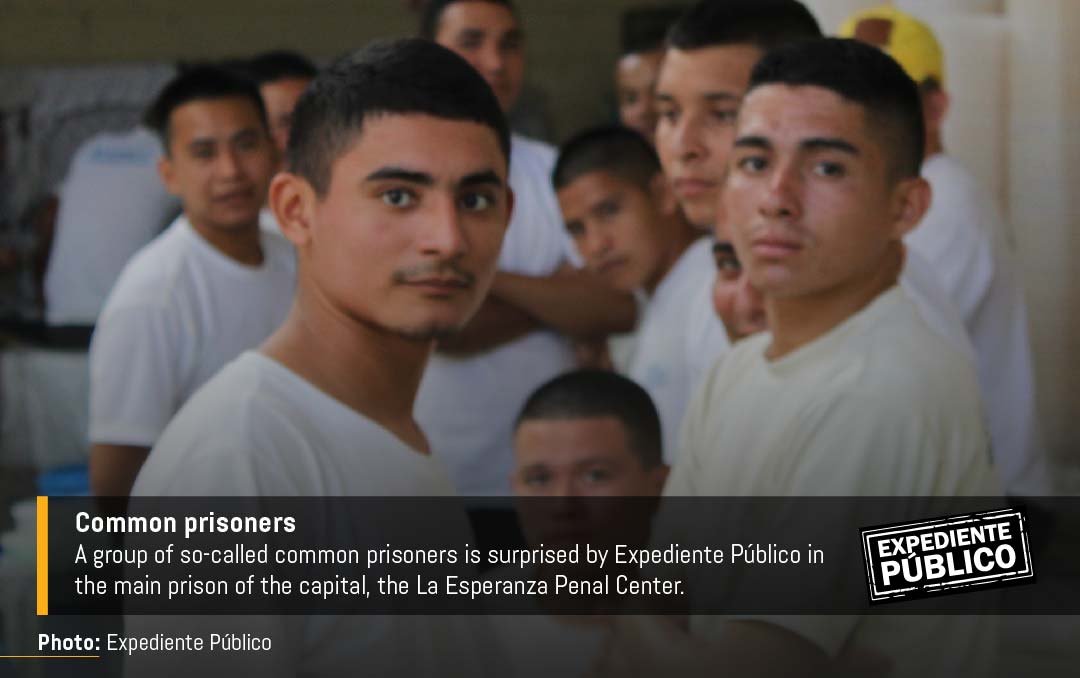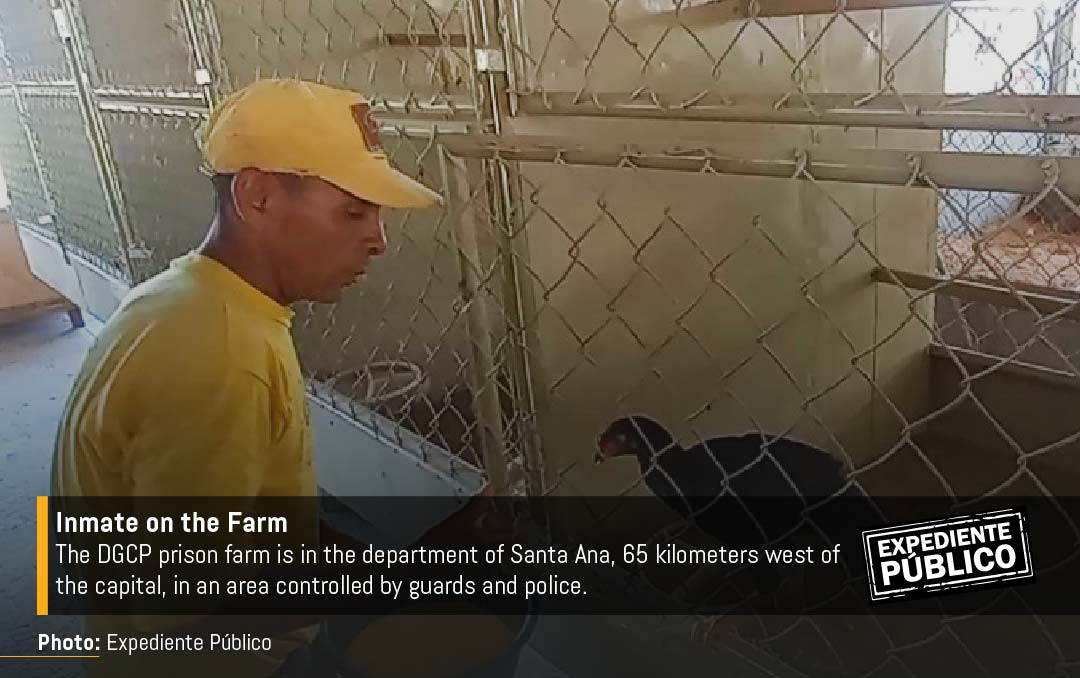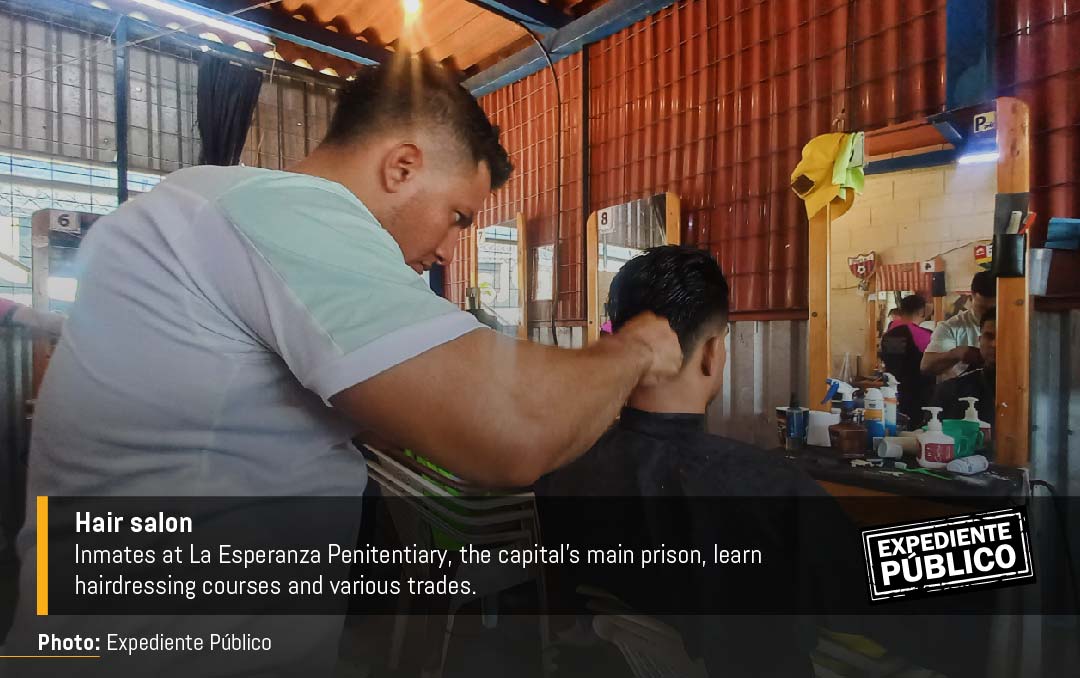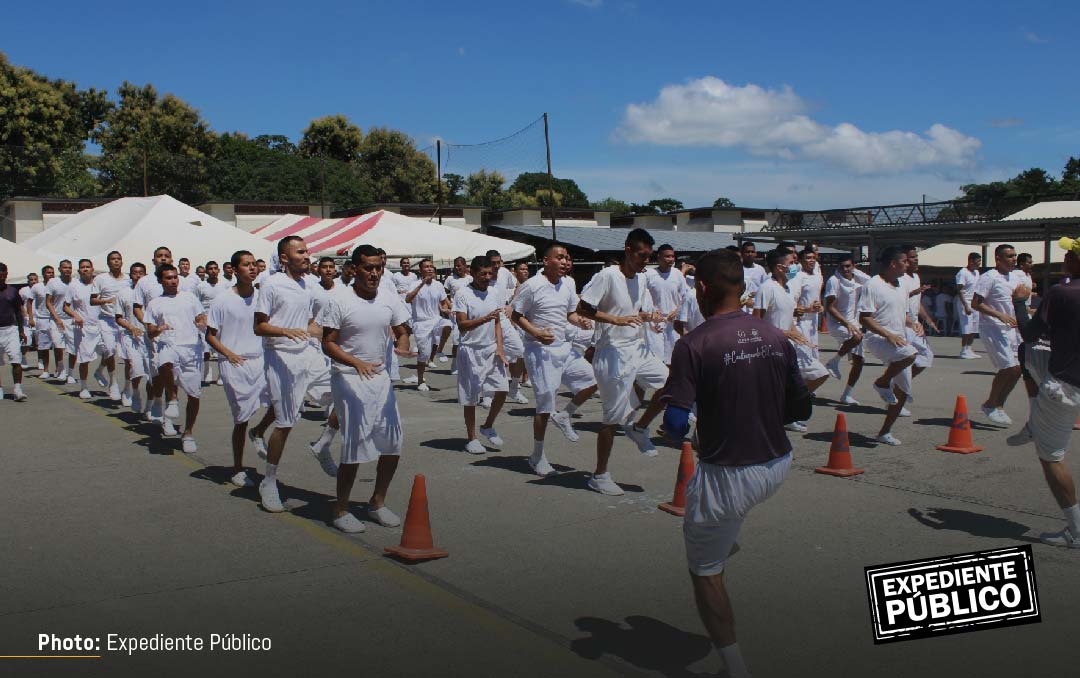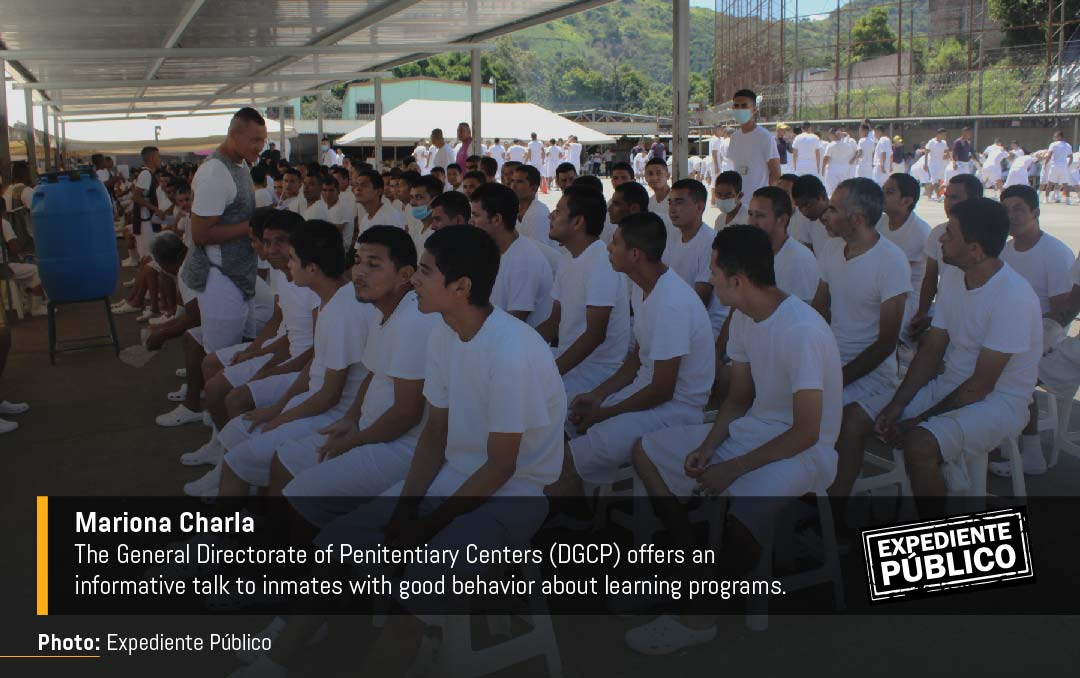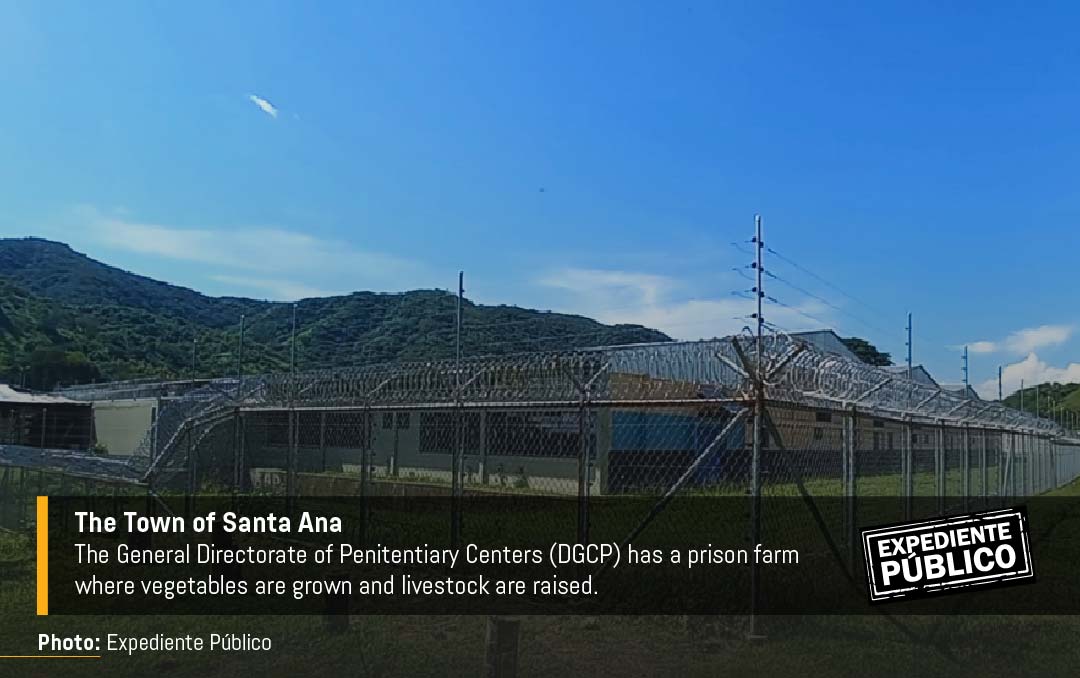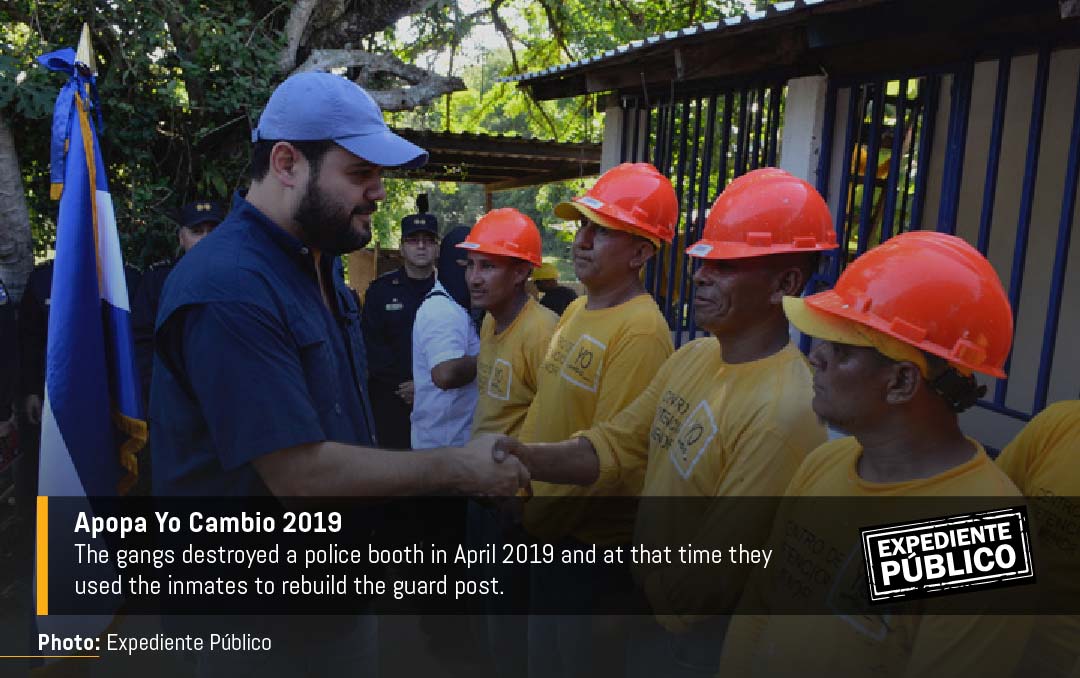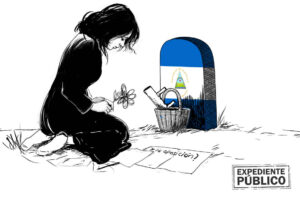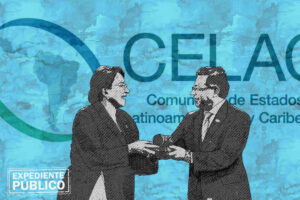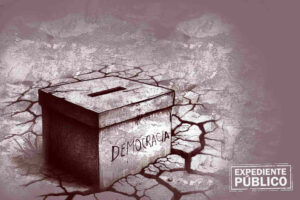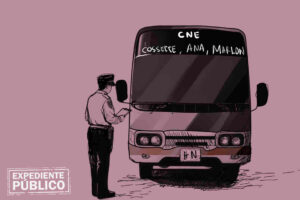* Rarely has the administration of Nayib Bukele opened the doors to journalists to see the lives of prisoners in a country with the highest rate of incarceration in the world.
** Expediente Público entered two of the prisons of El Salvador’s prison system after an invitation from the Government to the international press.
*** Large police presence to demonstrate a reintegration program that was created in 2011, but was renamed “Plan Cero Ocio” (Zero Leisure Plan).
Eric Lemus / Expediente Público
A group of foreign media outlets, including Expediente Público, entered two of El Salvador’s main prisons, after a visit organized by the government of Nayib Bukele.
The doors of two Salvadoran prisons were opened to the international press, after repeated complaints of abuses against detainees during the state of emergency that has been in force for 30 months.
Before the journalists entered the capital’s main prison, “La Esperanza,” located on the northern outskirts of San Salvador, on September 19, a platoon of the National Civil Police’s (PNC, Policía Nacional Civil) Order Maintenance Unit (UMO, Unidad de Mantenimiento del Orden) lined up in front of them to guard the entrance.
The “La Esperanza” Penitentiary Complex, popularly known as “Mariona,” after the jurisdiction to which it belongs, is a prison built in 1972 that testifies to the convulsive history of a country that suffered a civil war in the 80s and then gang violence for the next 30 years.
Subscribe to the Expediente Público newsletter and receive more information
The reporters confirmed the execution of the so-called “Zero Leisure Plan” that involves 2,000 inmates who are chosen after a scrutiny by the General Directorate of Penitentiary Centers (DGCP, Dirección General de Centros Penales).
Bukele’s government offers this plan to common inmates or those who demonstrated that they only collaborated with the gangs under threats, and that they were not members of the Mara Salvatrucha (MS-13) or Barrio 18.
Expediente Público, along with other international media, learned about the convict rehabilitation program first-hand.
A look inside the prison
After entering through narrow corridors and bypassing the security doors, Expediente Público arrived at the central courtyard of the prison where the prison authorities are holding an information session for inmates who are dressed in strict white attire.
Another group exercised outdoors following the instructions of an instructor who makes them perform squats and sit-ups.
You may be interested in: Three thousand minors without a criminal record are imprisoned in El Salvador
Under the permanent supervision of the official delegate of the Secretariat of Communications of the Presidency, the press entered the pavilions where the inmates learn hairdressing, auto mechanics, appliance repair and textile manufacturing. But there was no access to the cells.
In the maquila pavilion, the workers wear a light blue vest with a caption on their backs: “Vocational Training Center STUDENT for Textile Industrial Process Technician.”
Maquila and other trades workers
Prisoner Raúl Antonio López, an instructor at the prison maquila, was one of those authorized to speak to the press about the operation of the program. He explained how the inmates make prison uniforms and all kinds of clothing requested by the Government.
“We have even worked for the National Sports Institute in the making of garments used in the Central American and Caribbean Games, or made the uniforms of the Armed Forces and those used by prison officers,” López explained.
The inmates, who wear light blue vests, observe the arrival of the journalists with curiosity, but in silence and immersed in their tasks. The color identifies them as collaborators of the gangs, as they later explain.
López tells Expediente Público that inmates who apply to the workshops receive benefits such as the reduction of their sentence.
“There are people who have come here to learn different trades, since there is not only the maquila workshop; there is also carpentry, masonry, kitchen, shoe store, bakery,” he said.
“There are fellow prisoners who regained their freedom and come to visit us to tell us that they set up a small business,” says López, before we continue to enter other pavilions.
Gang members excluded
The director of the “La Esperanza” Penitentiary Complex, Juan José Montano, explained to Expediente Público that the project covers 2,000 prisoners and consists of keeping them “busy in some activity, whether it is work, studying, teaching.”
However, Montano clarifies that the “Zero Leisure Plan” only includes inmates without any type of link to gangs.
“The first thing that was done was to remove all the gang members from the program so that the rest of the (prison) population would not have that negative influence and could be incorporated into the different plans and training courses that are being given to them,” says Montano.
Expediente Público also confirmed that the inmates receive training in auto mechanics, autogenous welding and drawing and painting classes.
“It is very difficult for a gang member to reform, because if he has joined the gang, which is organized crime, he cannot leave or after one or two years say: ‘look, I don’t want to belong to the gang anymore,” Montano said.
“That has serious implications, it can even cost him and his family their lives,” he adds.
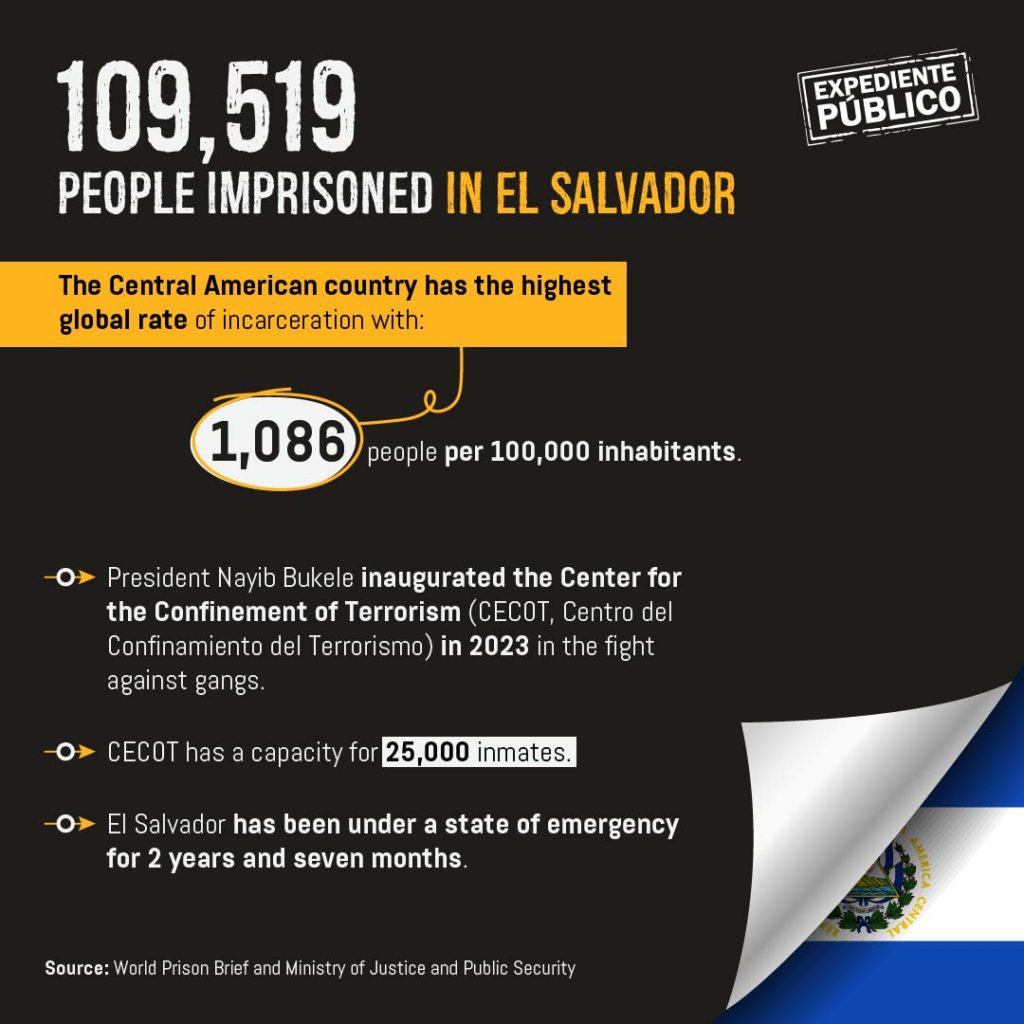
In the first year of Bukele’s government, in 2019, the homicide rate in El Salvador was 36 per 100,000 inhabitants. In almost three years of the state of emergency, it fell to 2.4, according to official calculations.
The prison director also explained that inmates who are serving the benefits of the sentence are included in a more flexible group where “they can leave the prison (under supervision) to work in the construction of hospitals, building and repairing schools, churches, parks and activities in support of the community.”
Overcrowding in prisons
The launch of the “Zero Leisure Plan”, which began in June 2024, comes as international organizations criticize the prison overcrowding that El Salvador faces.
Attorney Óscar Rosales tells Expediente Público his criticisms of the impact of the project for the reintegration and job training of prisoners.
“Having 2,000 inmates, who are the ones who are now working in streets, in public constructions, in several companies that are supposedly state-owned, and that are building large commercial spaces (…) it is not true that this will solve the problem,” he objects.
Meanwhile: El Salvador Summoned to the IACHR for Abuses During the State of Emergency
“The seed of the Zero Leisure Plan” dates back to 2011 when the administration of former President Mauricio Funes created the «I Change» program as a solution to address the overcrowding that was already detected in prisons.
Funes, who lives as a naturalized citizen in Nicaragua, governed El Salvador between 2009 and 2014; meanwhile he is wanted by the justice system of his native country accused of various cases of corruption.
One of the main legacies of Funes’ program was the construction of the penal farm that is still operational in the west of the country.
In Salvadoran prisons, the cells were designed to house between 50 and 70 inmates, but, in practice, they bring together up to 300 people in a space of less than one hundred square meters, according to human rights organizations based on testimonies of former inmates.
In fact, the 2024 report by Human Rights Watch (HRW) called for the end of the state of emergency, which reports the capture of more than 80,000 people in the last two and a half years.
A self-sustainable farm
Once the international press verified the different pavilions of the capital’s prison, the delegate of the Secretariat of Communications of the Presidency invited Expediente Público and the rest of the media to continue the guided tour to the Penal Industrial Farm of Santa Ana, 67 kilometers west of the city.
Unlike the first prison, the Santa Ana Penal Industrial Farm is an open field with an area for raising livestock, poultry, growing fruits and vegetables and reproducing fish in freshwater ponds.
In this place, Expediente Público verified that the inmates included belong to the confidence phase, which means that the inmates have a history of good behavior and zero connections to gangs.
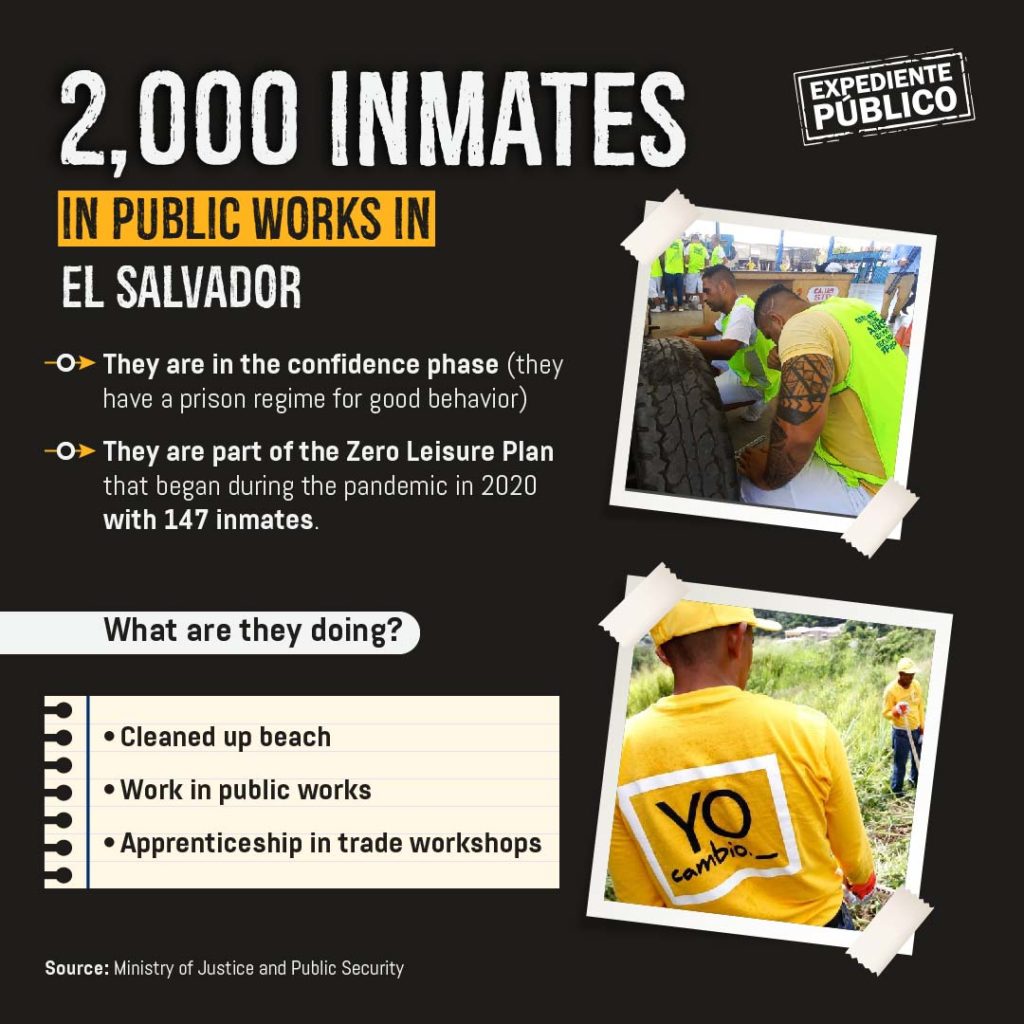
The director of the prison farm, Samuel Díaz, explained to this media outlet that the inmates learn from the breeding of poultry, pigs, rabbits, goats and the production of cream, cheese and cottage cheese because they have 45 head of cattle that supply the kitchen of the same enclosure.
“Here are people who have previous knowledge in livestock issues and others who have been incorporated into the different programs, which are taught by the Ministry of Agriculture and Livestock,” Díaz said.
The General Directorate of Penitentiary Centers (DGCP) promotes the prison farm as a self-sustaining place where inmates produce their own food.
In the same facility, another group of inmates make an average of 500 school desks a day that are then distributed in the country’s public school system, according to official authorities.
Prison and heavy-handed approach
Bukele, who resorted in March 2022 to a mano dura (iron first) policy with a Territorial Control Plan, has had this Central American country under a strict state of emergency for two and a half years, as part of the so-called war against the MS-13 and Barrio 18 gangs.
According to the World Prison Brief’s calculation, El Salvador has the highest incarceration rate in the world with 1,086 people per 100,000 inhabitants behind bars, for 109,519 people in prison.
This Central American country is ahead of Cuba (794 prisoners per 100,000 inhabitants), Rwanda (621), Turkmenistan (576) and the United States (531) in terms of proportion of the population deprived of liberty.
Within this punitive model, the president inaugurated the Terrorism Confinement Center (CECOT, Centro del Confinamiento del Terrorismo) in 2023 as a maximum security place to detain criminals, but only some foreign content generators or the official press managed to enter this building.
Criticism over human rights abuses
During the 79th session of the General Assembly of the United Nations (UN), Bukele reiterated the success of his ‘manodurista’ vision.
“In El Salvador we prioritize the safety of our honest citizens over the comfort of criminals. Some say we have imprisoned thousands, but the reality is that we have freed millions,” he said on September 24, 2024 in New York City.
However, critics of the president contrast his words with the denunciations of international organizations about the conditions of the prison system and the prolonged state of emergency.
A report by the non-governmental organization Humanitarian Legal Relief (SJH) detailed, for example, that at least 315 inmates died in state custody due to violent death, terminal illness or negligence due to lack of medical care.
Attorney Óscar Rosales believes that a reintegration program of 2,000 inmates has a limited effect compared to more than 100,000 incarcerated nationwide.
“This is not only a cover for government propaganda, but it is also an attempt to justify investments that are not being made or exorbitant expenses that are being carried out and that are being spent from the State’s public funds,” he insisted.

